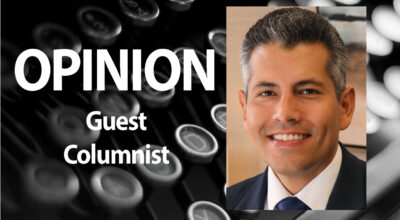Taxpayers funded a lifesaving drug and guess what happened next
Published 8:49 am Saturday, August 20, 2016
By Sen. Bernie Sanders
The pharmaceutical industry has become a major health hazard to the American people.
Our nation pays – by far – the highest prices in the world for prescription drugs. As a result, nearly one in five Americans cannot afford to fill their prescriptions. That is unacceptable. A lifesaving product does no good if patients cannot afford it.
A new report from Americans for Tax Fairness explains how a pharmaceutical company, Gilead Sciences, games the system to charge high prices and then shifts the profits offshore to avoid billions in U.S. taxes.
Gilead sells Sovaldi, a drug used to treat the hepatitis C virus. It was developed in part with taxpayer funds by a researcher who worked at the Department of Veterans Affairs and founded a small drug company. Gilead bought the company for $11 billion and used government-provided monopoly rights to set the sticker price at $1,000 per pill, or $84,000 for the twelve-week course of treatment in 2014.
U.S. public and private insurers, taxpayers and patients spent more money on Sovaldi in 2014 than on any other prescription drug, according to a report from the IMS Institute for Healthcare Informatics. And yet state Medicaid programs could afford to treat fewer than one in 40 patients with hepatitis C in 2014.
If gone untreated, hepatitis C can end in what one nurse-practitioner called “some of the worst deaths I’ve ever seen.” She said, “At the end, you die not knowing who you are, your belly looks 12 months pregnant, you’re malnourished, and you’re bleeding to death.” Patients with hepatitis C are often low-income and a disproportionate number of them are veterans.
Gilead’s profits have quintupled since it started selling the drug, from $4 billion in 2013 to $22 billion in 2015. Gilead claims that it earns two-thirds of these profits offshore, but this is impossible because it reports earning two-thirds of its revenue here in the U.S., where it charges higher prices than anywhere else in the world.
The company pays an effective tax rate of just 1 percent in the foreign countries where it claims to do business. In 2013, Gilead’s chief financial officer revealed the strategy by announcing the formula for Sovaldi was being transferred to Ireland in order to allow the company’s effective tax rate to “decline over time.” Gilead’s worldwide effective tax rate dropped from 27 percent in 2013 to 16 percent in 2015.
So taxpayers helped bankroll[ed] the research behind the hepatitis C drug, Gilead charged Americans the highest price in the world for the treatment and now we are getting cheated a third time as Gilead stashes its profits abroad to avoid taxes.
Gilead is not the only company taking advantage of our public research funding and tax loopholes. Pfizer, Merck, Johnson & Johnson, Eli Lilly, Bristol-Meyers Squibb and many others engage in similar offshore tax dodging to avoid billions in U.S. taxes each year.
At what point will Congress have the courage to stand up to the greed of the pharmaceutical industry and say enough is enough?
Congress should address this in several ways. First, in extraordinary circumstances, such as a cure for hepatitis C, federal law allows the government to use patented inventions with or without the permission of the owner as long as they are fairly compensated. Second Congress must repeal the rule allowing our corporations to defer paying taxes on profits they claim to earn offshore. We must also take several other steps to lower drug prices, including instructing Medicare to negotiate drug prices and reducing the barriers to the importation of prescription medication from Canada and other countries.
Americans — including veterans, retirees, and children — who suffer from serious, sometimes fatal, illnesses like hepatitis C and cancer need a government that works for them, not just the CEOs of large pharmaceutical companies and the billionaire class.
Bernie Sanders is a U.S. Senator from Vermont





